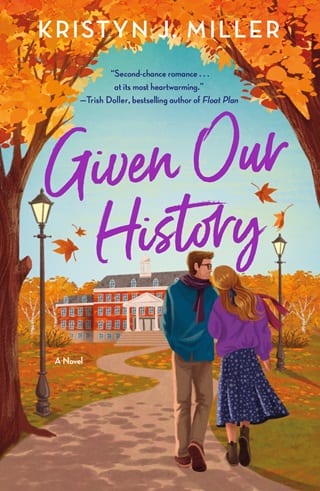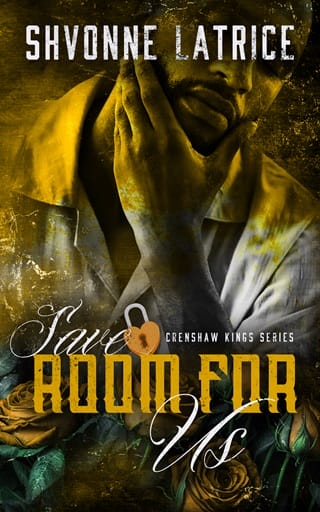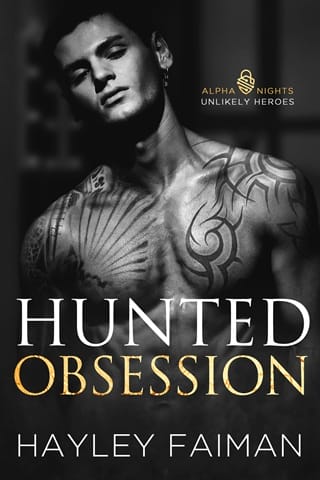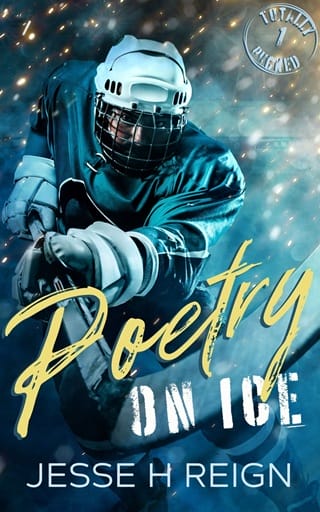Chapter 22
CHAPTER
22
THIRTEEN YEARS AGO
People have a way of convincing themselves that they’re the exception, not the rule.
Maybe it’s ego. Maybe it’s a self-preservation thing—we have to believe that we’re not doomed to repeat everyone else’s mistake, or else we’d be paralyzed into inaction, too scared to take the leap. Or maybe it’s a strange form of solipsism, where you convince yourself that everyone else is running on autopilot, and you’re different because your decisions are deliberate, informed; you know what you’re doing. You can share firsts, learn to bare your soul to someone without it having to be at the expense of your friendship. All those other people, the people who fell in love, who made things messy, who woke up one day and realized they could never go back to the way things were—those people were nothing like the two of you.
Except in all the ways you were exactly the same: in the way he looked at you every time he saw you, like you were the first rain after a long drought—palms turned up, catching droplets, because to have some small part of you was better than having none of you at all. In the way your pulse raced beneath your skin whenever he touched you. And in the drifting apart, that moment when you realized you were no longer on the same page. That you wanted two different things.
I think maybe it’s best if we go back to just being friends.
What he was asking wasn’t possible.
As much as I didn’t want a relationship, we couldn’t go back to the way things were. Our conversations became awkward, stilted. With little happening in my life to distract me, I dove headfirst into that first semester of college, volunteering in the food cupboard on campus and joining the Sigma Tau Delta book club to keep myself occupied between classes. Teddy seemed all too willing to fade into the background—or maybe we were both just busy, but I resented it all a little more for every week we went without a phone call, every time a text message came through with a one-word answer or a thumbs-up. When neither of us called the other on Christmas that year, a part of me mourned the loss of our friendship. But I told myself that I understood: life went on.
Determined to get out of my funk, I applied to a semester abroad program, and the following year I packed my bags for Queen Mary University in London, where I fell in love with the city and its history. Maryland had a long history of its own, but everything in England felt so much older, like walking every gum-riddled sidewalk and zebra crossing was walking in the footsteps of ghosts. It was easy to romanticize it all, being so far from home. The heavy gong of the bells at Westminster Abbey; the colossal plaster cast of Trajan’s Column in the Victoria and Albert Museum; touring the cold sepulcher of the royal tombs in the Lady Chapel, footsteps echoing off the high ceiling as I stared into the gilded faces of long-dead royals, lying in repose. Back home, history had felt like something contained, bound in books full of names and dates. But here, it bloomed outward like a spiderweb of veins running beneath the city—living, pulsating.
Despite my efforts to distract myself, I wanted to call Teddy, to share this sense of wonder with him, because I knew that he would understand it. I’d downloaded WhatsApp so that I could keep in touch with my parents and Izzy without racking up my phone bill, but messages from Teddy were few and far between—wishing me a happy Easter, or sending a picture of a textbook beneath a yellow lamp in the library, accompanied by a short message lamenting a deadline—and I’d left half of them on read. After a while, the messages stopped altogether.
Plans for Izzy to come visit me over spring break fell through when she failed to renew her passport on time, so I spent a week sightseeing by myself, on quiet bus rides with my earbuds in, the English countryside zipping past my window. It was raining when I visited Stonehenge, the grass slick beneath my tennis shoes and the snaps on my raincoat buttoned up to my chin, but I traipsed all the way from the drop-off point despite the weather—my mom had a coffee table book of famous landmarks with Stonehenge on the cover, and she always swore she’d visit one day, so I was determined to get a picture for her.
The stones were dark with water and freckled in lichen, and I was forced to stand a good fifteen yards away behind a cordon, hugging myself in the rain. Meanwhile, a crow landed on one of the lintel stones, preening feathers as wet and black as oil. I dug my phone out of the pocket of my raincoat, hoping to be quick about this. Raindrops speckled the screen as I pulled up the camera and snapped a few quick selfies.
“Do you want me to take one for you?” a man’s voice called across the grass.
I looked over. He was standing a ways away, wearing a large and structured raincoat, and behind the stiff collar, a square jawline peeked over a turtleneck. I recognized him from the tour bus.
“Sure,” I called back. “That would be great.”
He drew near and I handed him my phone, noting as I did so that he wasn’t bad-looking. His dark blond hair was damp with rain and he was average height, lean beneath the layers of warm clothes. He took a couple of pictures and handed it back so that I could check whether I liked them. I looked like a snap pea with just my face poking out of the raincoat, but my mom was the only person who was going to see these, so I thanked him and pocketed it.
“It’s smaller,” he said, his forehead wrinkled as he nodded toward the stones, “than I thought it would be.”
“I don’t know. Still pretty impressive that somebody was able to move them like that.”
He turned to stare at me. “You’re American.”
I nodded. “I’m doing a semester abroad. You?”
“Canadian. Originally from Toronto, but I moved to London for work.” I cast him a curious look, and he tacked on, “I’m a business analyst.”
“I’m going to be honest. I have no clue what a business analyst does.”
He chuckled. “You’re asking the wrong person. I’m not really sure myself.” We lapsed into silence, hands shoved in the pockets of our coats, both looking at Stonehenge more than we were looking at each other. But he didn’t walk away. “What do you study?” he asked after a moment.
“History.”
“My worst subject.” I glanced at him and he gave me a self-deprecating smile. “All the names and dates, everybody’s dead.” With a pang of longing, I thought of Teddy. I hadn’t heard from him in months. I was so lost in thought that I didn’t say anything, and so after a moment, the stranger thrust out a hand. “Emmett, by the way.”
My fingers were wet and numb with cold, but his hand was warm. “Clara.”
“Clara,” he said slowly, like he was savoring it, “I don’t suppose I could convince you to grab a coffee with me.” He inclined his head in the direction of a bus ambling up the road, exhaust billowing behind it. “After the tour, of course.”
I gave him a tight-lipped smile. “I might be persuaded.”
Emmett and I casually dated for the remainder of my semester in England. We had few things in common, and we had an expiration date right from the beginning in the form of my plane ticket back to Baltimore, but we found camaraderie as two people living outside their home country. And he was interesting in a novel sort of way, explaining things like forecast and variance analysis, stuff I’d never really studied. He tolerated my interest in history, meeting me in abbeys and museums but mostly looking bored, his face lit by his phone. “Work,” he’d say when I shot him an irritated look. We had sex the week before I left, because even though it wasn’t perfect, I liked Emmett enough. I never told him it was the first time, and if he noticed, he didn’t comment on it. A week later, we broke up amicably. And while I would return to England several times over the years, for research or school, I never had any interest in looking for him. Our relationship had run its course.
I returned to UMD in the fall with a renewed sense of purpose. I resolved to write my capstone on Tudor-era England but had trouble pinning down an exact subject; my advisor, a dour woman with a white-blond pixie cut who taught intersectional courses in the Religious Studies Department, suggested that I focus on the formation of the Church of England, and—because I could use the guidance—I agreed. At the same time, I started looking into applications for graduate programs overseas. I’d learned during my year abroad that there were programs in the U.K. that would allow me to finish my master’s within a year, back in the States in time for my birthday. It was the next logical step in my plan.
Since I’d returned home, things between me and Teddy had sort of leveled out. We were on speaking terms, at least, something that toed the line between friends and simply friendly acquaintances, texting intermittently about school and work and the weather. He was already knee-deep in a Ph.D. program, so he didn’t have a lot of free time, but we met up for coffee once or twice. I told him that I’d received an offer for a full ride to University of Manchester. He seemed happy for me, but in a polite, surface-level sort of way. We didn’t talk about us, or the future.
We were, as it turned out, the rule.
 Fullepub
Fullepub 



